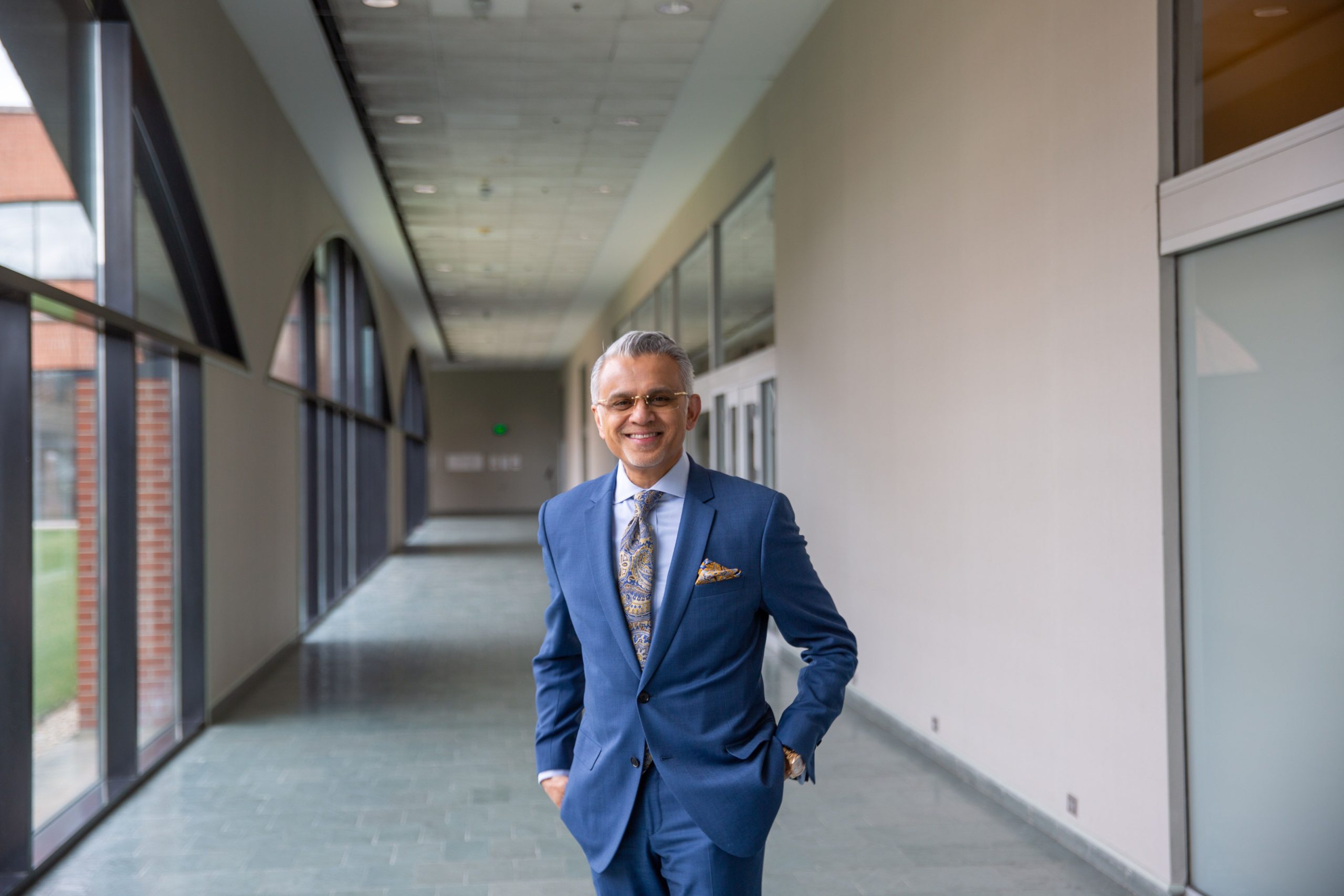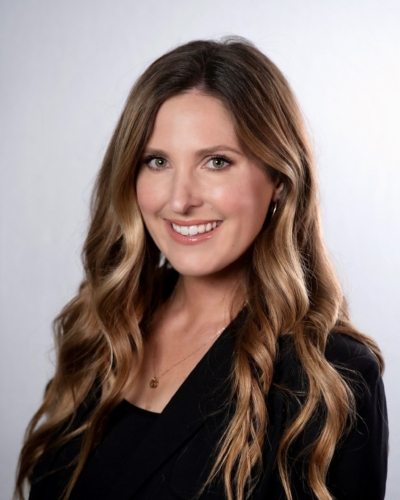
You think you know what to expect. After all, you already hang one degree – probably more – on your wall. Chances are, you’ve already closed deals, built teams, and tamed budgets too. You’re a high performer with a high ceiling. Still, business school feels different – like a new job. There are new people and new expectations. As you weigh returning to school, you’ll ask the same questions as every other applicant…
Is this worth it?
Am I cut out for this?
‘IT KEEPS YOUR BRAIN SHARP’
It’s natural to have doubts. You’re already shouldering so many responsibilities at work and home. An MBA requires more time, more planning, more energy, and more sacrifice. It means late nights and early mornings, weekend travel and missed events, added pressure and some guilt too. At the same time, an Executive MBA program exposes you to cutting-edge strategies and processes that can be game-changers to your firm. It positions you as an expert and leader poised to take the next step forward in your career. Even more, it introduces you to a peer network – seasoned executives from a range of industries, functions, and experiences – who can guide you when internal resources aren’t enough.
Alas, making the commitment is the hardest part. Along the way, you’ll hear a lot of conflicting thoughts about business school. Just ask Keoki Williams, a decorated physician and researcher who earned his MBA from the University of Chicago’s Booth School this spring. Entering his early-50s, Williams was warned that he was “too old to derive a suitable return on [his] investment.” Others told him that business fundamentals weren’t necessary to fulfill his ambitions. In the end, Williams dismissed the naysayers – and gained benefits he didn’t expect.
“First, school is the best way to exercise your brain and keep it sharp, so if this is personally important to you, you are guaranteed to get your ROI,” Williams tells P&Q. “Second, our MBA class included many individuals with no formal business training (e.g., lawyers, physicians, and military veterans). Our program provided summer pre-class preparation to ensure that everyone had an adequate foundation, so prior business experience was not required.”

Satchi Hiremath, Indiana University (Kelley)
YOU CAN’T ”PHONE IT IN”
At the opposite end, prospective MBAs will sometimes hear peers shrug off the difficulty of earning the degree. They’ll claim it is easy – ‘MBA Lite” to use a popular phrase. Instead, it involved a faster pace in a shorter window, says Satchi Hiremath, a physician executive responsible for 12 service lines across 28 hospitals and 500 ambulatory care sites.
“It’s not a pass-through experience to get to the magic three letters added to your name,” Hiremath observes. “You’re not getting coddled. One of the accounting professors, Reed Smith, said it best when he said: “You think the material will be ‘accounting light,’ No this is ‘accounting heavy.’” High-level achievement takes great effort. This is not a program where you excel by phoning it in.”
What are the biggest myths surrounding executive MBAs? How relevant are they? This spring, P&Q surveyed MBAs from 56 elite business schools to learn about the biggest myths they encountered during the admissions process. From workloads to classmates, here is what top ’23 graduates had to say about misconceptions around executive MBA programs.

Alicia Hardy, Yale School of Management
Myth: It’s Too Late Once You’ve Hit Mid-Career:
Reality: “I had to ask my best friend about this and he remined me that many people think it is impossible to manage a degree like this when mid-career and mid-life. But he also reminded me that once you are in the swing of things, if you find the time then you find the energy. The myth is that it will be close to impossible to balance it all, and the truth is that it is that you just manage your own self-expectations differently and you surprise yourself with your ability and capacity to learn and achieve.”
Alicia Hardy, Yale School of Management
Myth: Business school is all about “learning how to make money and maximize profits.”
Reality: “While these are certainly important considerations in launching and managing a company, modern business schools also focus on social responsibility, leadership, managerial skills, sustainability, ethics, diversity and inclusion, and other relevant issues that affect society. Columbia Business School offers many courses and track programs specifically focused on these topics, such as the Women in Business initiative, Climate Finance, High Impact Leadership, the Board Leaders program, and the DEI initiative, to mention a few. As an EMBA, I lived a multi-themed experience in business school as I attended several on-campus events, interacted with members of different student clubs, networked with officers from the Career Center, and received mentorship by 10+ Executives-in-Residence to advance my career in many other aspects of business other than finance.
Edgar Iván Núñez Loya, Columbia Business School
Myth: You must fit a particular “mold” to go to business school.
Reality: “One of the biggest myths about going back to school is that you must fit in a particular mold to go into business school. However, I would say the strength of the program is the diversity of thoughts and experiences that reach across different professions. As an example, our cohort consisted of physicians looking to go into administration because they understood the practice of medicine but didn’t fully understand the executives behind the scenes making decisions. Every single one of our cohort peers valued having a physician’s perspective at the table when we were discussing case studies.
We had active and former military personnel, marketers, operations leaders, and accountants – and all those ideas and perspectives added value to class discussion. There were people who worked for large Fortune 100 companies like Disney and people who worked for small start-ups and not-for-profits. It was tremendously valuable to share a room with this group of leaders for 21 months and made me more effective as a result.”
Ryan Quattlebaum, University of Florida (Warrington)

Alex Fite, University of Michigan (Ross)
Myth: You can learn the traditional MBA curriculum for free.
Reality: “Sure – there is an amazing amount of information available via podcasts, books, and Youtube videos. I am an avid consumer of all those things! However, the ability to apply learning via case studies; have what is important distilled by experienced professors; and working through the details in our group projects is where I derived the value of the tuition. And the cherry on top was the informal learning from being in the company of my cohort every month.”
Alex Fite, University of Michigan (Ross)
Myth: You don’t have the time and energy to do all the readings and work.
Reality: “Learning actually GIVES one energy as long as all the other activities in life are in balance. The time is matter of prioritization, and there is always time to those things that one wants to do.”
Tapio Kallonen, INSEAD
Myth: It’s just like undergraduate school.
Reality: “Most people remember school as a chore, so the thought of going back can inspire some undergraduate trauma. For many MBA candidates, the journey is a rush. We’re life learners. Because we’re no longer trying to get our first job, school isn’t a burden. It doesn’t feel like high school or college—so don’t worry. I’ve had an amazing experience.”
Reginald Draper, UC -Berkeley (Haas)





Questions about this article? Email us or leave a comment below.